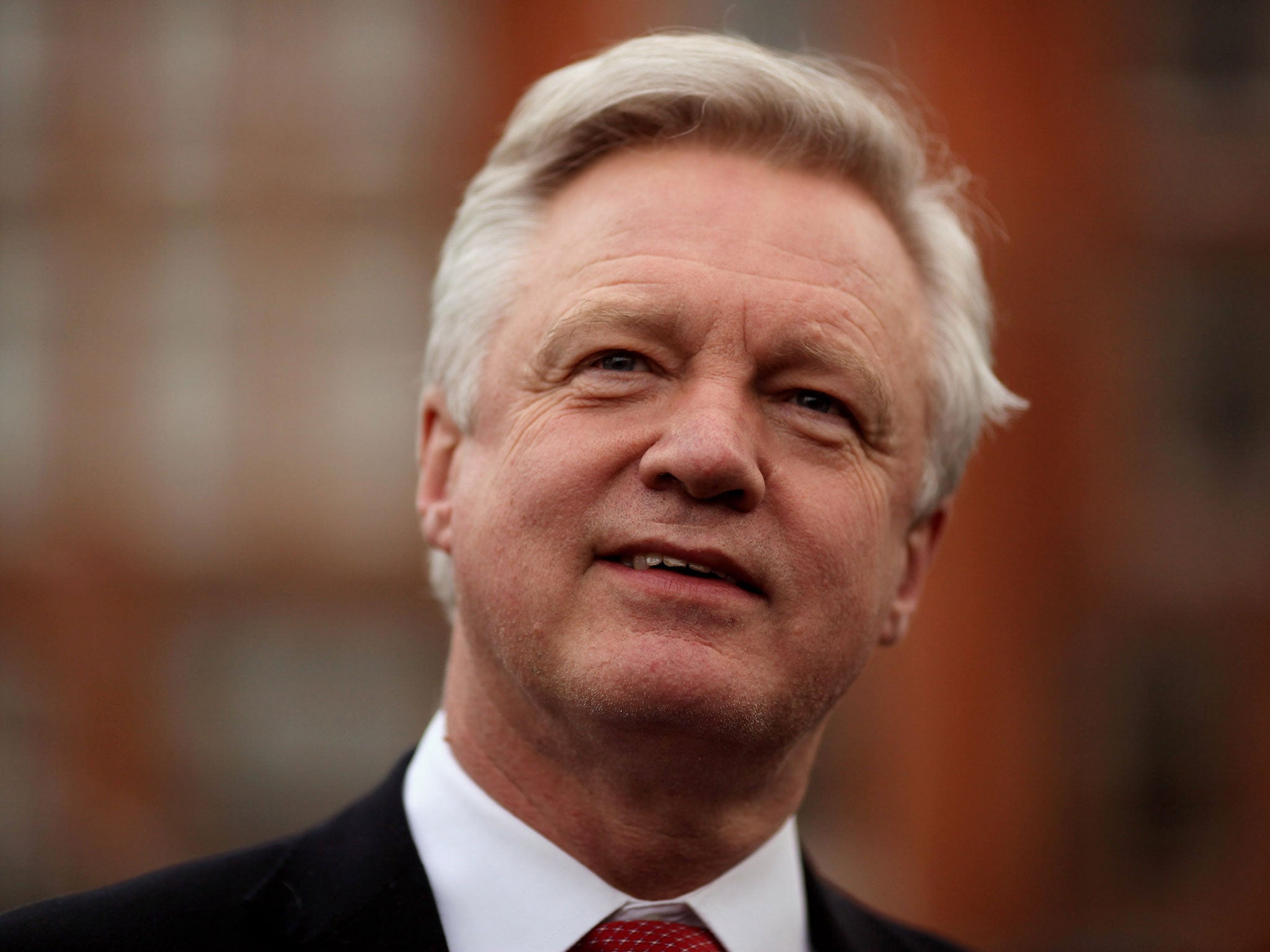Untruths and hyperbole deployed by politicians during the EU referendum campaign were not important and did not swing the result of the vote, the Brexit Secretary has said.
David Davis said claims made by both sides could not be “repeated on oath” but that the issue had “inspired such passions” that the campaign could not have been conducted in any other way.
His comments come after controversy about a now-disowned claim by Vote Leave that the EU received £350m each week from the UK taxpayer and that this could be spent on the NHS after Brexit.
Asked whether he agreed there were “untruths” on both sides of the debate Mr Davis said he agreed there had been “a lot of hyperbole”.
But he said it was “probably not” possible for the campaign to have been conducted more truthfully.
“It’s such a big issue and it inspired such passions,” the Secretary of State told the fringe event at the Conservatives’ Birmingham conference on Tuesday.
“Look, could anyone tell me a general election in which everything said was capable of being repeated on oath? Answer: no, never.
“I remember a general election when the Labour party were going around saying the Tories were going to remove your pension. Do you remember that one? There were people being reduced to tears on the doorstep.
“What is important is not what is said. It’s whether it’s challenged, in the first instance, and then the British public can make a judgment.
“The British public made its judgment, not most famously with the £350m on the side of the bus or indeed on George’s £4,000 a family – they dismissed those things. They made their judgment on other things.
“The important thing about democracy … right down through the ages the people have always been wiser than the rulers. That’s the saving grace of it.”
The Brexit Secretary also admitted he had made “a little bit of money on” the referendum result by betting on the outcome, which he said he had predicted to within a percentage point months out of polling day.
Liberal Democrat MP Tom Brake said Mr Davis was trying to brush the conduct of the campaign “under the carpet”.
“This is utter shamelessness from one of the leading Brexit campaigners," he said.
“The brazen lies of the Leave campaign had a huge impact, they cannot simply be brushed under the carpet.
“We must hold this Conservative Brexit Government to account and ensure any final deal is put to the British people.”
Polls conducted in mid June showed half of the British public believed Vote Leave’s claim that the UK pays £350m a week to the European Union despite the figure being debunked.
Ipsos MORI found that 47 per cent of the public believed that the claim, which had been repeatedly criticised by the UK Statistics Authority, is true.
Just 39 per cent realise the figure, which formed the centerpiece of the Vote Leave campaign, is false, while 14 per cent do not know.
The most scaremongering arguments for Brexit
Show all 7Sir Andrew Dilnot, chair of the UK Statistics Authority, said last month he was disappointed that the Brexit campaign continued to make the claim as it was “misleading and undermines trust in official statistics”.
There was however widespread public disbelief of a Treasury forecast suggesting that households would be £4,300 permanently worse off after Brexit, according to the same poll.
In June, Britain voted to leave the EU by 51.9 per cent of the vote to 48.1 per cent. Theresa May has said she will trigger article 50, formally starting the Brexit process, in the first quarter of next year.
Subscribe to Independent Premium to bookmark this article
Want to bookmark your favourite articles and stories to read or reference later? Start your Independent Premium subscription today.


Join our commenting forum
Join thought-provoking conversations, follow other Independent readers and see their replies